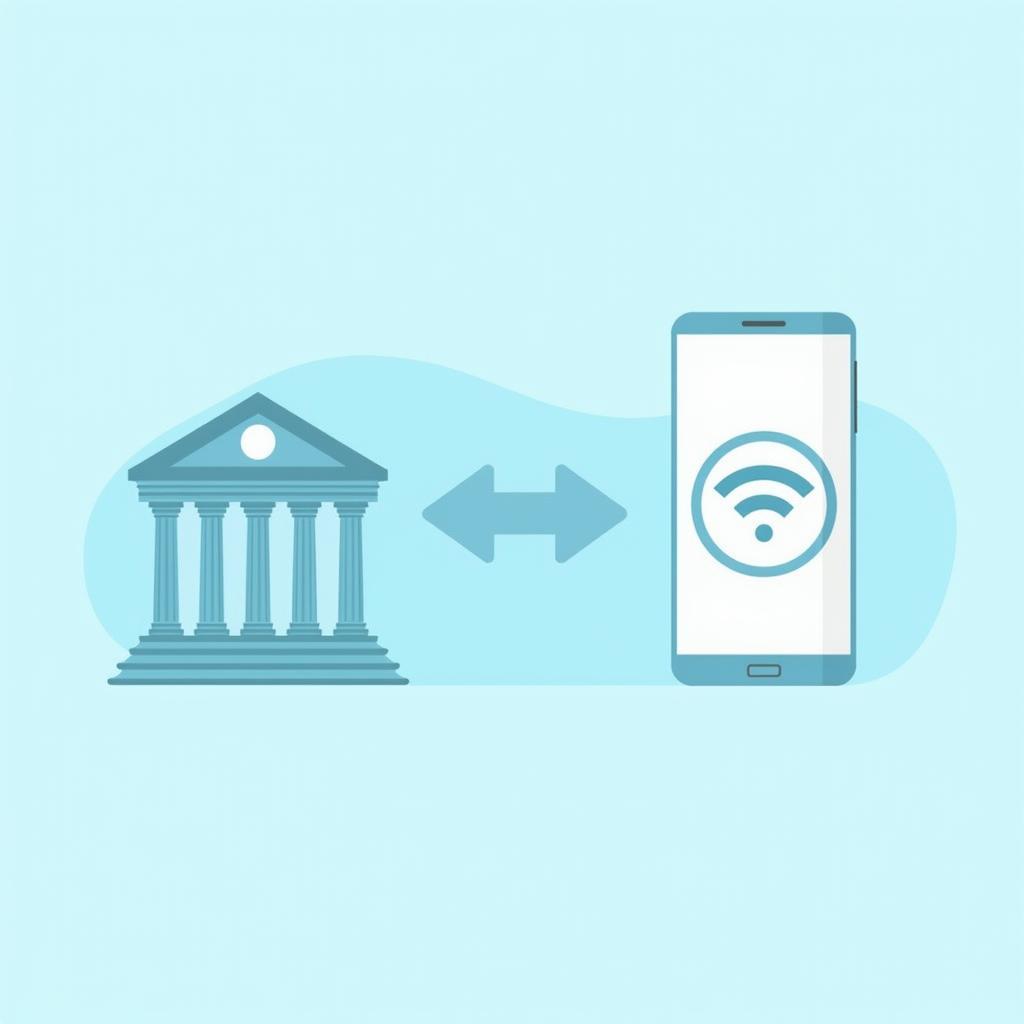Mở bài
Chủ đề Impact Of Mobile Payment Systems On Banks (tác động của hệ thống thanh toán di động lên ngân hàng) xuất hiện ngày càng thường xuyên trong IELTS Writing Task 2, dưới các biến thể như cashless society, online banking, fintech và privacy. Đây là chủ đề “thời sự” vì liên quan trực tiếp đến cách chúng ta chi tiêu, gửi tiền và quản lý tài chính. Trong bài này, bạn sẽ:
- Luyện 3 bài mẫu hoàn chỉnh (Band 8-9, 6.5-7, 5-6) kèm phân tích chấm điểm chi tiết
- Nắm chiến lược triển khai ý, từ vựng chuyên đề và 6 cấu trúc câu “ăn điểm”
- Có checklist tự đánh giá trước–trong–sau khi viết để cải thiện nhanh
Một số đề Task 2 đã được xác minh trên các nguồn uy tín (IELTS Liz, IELTS-Blog, British Council/IDP) có liên quan gần gũi đến chủ đề này:
- In many countries, people now pay for things using mobile phones. Why has this happened? Are there more advantages than disadvantages? (được báo cáo bởi IELTS-Blog; chủ đề mobile payment)
- More and more people are using the Internet to do their banking, shopping and work. Do the advantages outweigh the disadvantages? (được liệt kê trong bộ đề thực tế của IELTS Liz; chủ đề online banking)
- Some people believe that cash will be replaced completely by electronic payment methods in the near future. To what extent do you agree or disagree? (được ghi nhận trong các đề “cashless society” trên IELTS Liz/IDP)
Trong phần dưới, tôi chọn dạng Discuss both views & give your opinion, tập trung trực diện vào impact of mobile payment systems on banks để bạn luyện sâu theo đúng trend. [internal_link: ielts-writing-task-2-discuss-both-views]
1. Đề Writing Part 2
Mobile payment systems (e.g., Apple Pay, Alipay, M-Pesa) are becoming increasingly widespread. Some people argue that they will make traditional banks less important, while others believe banks will remain essential. Discuss both views and give your own opinion.
Dịch đề: Một số hệ thống thanh toán di động (ví dụ: Apple Pay, Alipay, M-Pesa) đang trở nên phổ biến. Có ý kiến cho rằng chúng sẽ khiến các ngân hàng truyền thống kém quan trọng, trong khi người khác tin rằng ngân hàng vẫn là thiết yếu. Hãy thảo luận cả hai quan điểm và nêu ý kiến của bạn.
Phân tích đề bài:
- Dạng câu hỏi: Discuss both views and give your opinion. Bạn phải trình bày cả hai lập luận rồi khẳng định quan điểm cá nhân rõ ràng.
- Từ khóa: mobile payment systems, traditional banks, less important, remain essential. Chú ý “banks” là hệ sinh thái: huy động vốn, tín dụng, thanh toán, bảo mật, tuân thủ.
- Lỗi thường gặp:
- Viết lệch chủ đề sang “cashless society” chung chung mà quên tập trung vào tác động lên ngân hàng.
- Thiếu ví dụ/logic về mảng ngân hàng: lợi nhuận, rủi ro, quy định, dữ liệu khách hàng.
- Không nêu rõ opinion hoặc opinion mâu thuẫn.
- Cách tiếp cận:
- View 1: Mobile payments đe doạ ngân hàng ở mảng thanh toán/bán lẻ: disintermediation, erode fee income, dữ liệu chuyển sang Big Tech/fintech.
- View 2: Ngân hàng vẫn thiết yếu: cấp vốn, quản trị rủi ro, AML/KYC, bảo hiểm tiền gửi, vai trò hạ tầng. Hợp tác qua open banking, white-label, co-branded.
- Opinion: Cân bằng thực dụng: banks không biến mất nhưng buộc phải tiến hóa thành “platform + risk manager”.
 Minh họa impact of mobile payment systems on banks và đề Task 2
Minh họa impact of mobile payment systems on banks và đề Task 2
2. Bài mẫu Band 8-9
Bài Band 8-9 thường có: lập luận cân đối, ví dụ/khái niệm xác đáng, từ vựng chính xác, cấu trúc câu đa dạng, mạch lạc và quan điểm rõ ràng.
Essay (290 words):
Mobile wallets have surged from niche products to mass-market rails, prompting speculation that they will displace traditional banks. While there is some evidence that they erode banks’ fee income and loosen their grip on customer data, I contend that banks will remain indispensable as infrastructure providers and risk managers.
On the one hand, mobile payment platforms can disintermediate banks in day-to-day transactions. By offering frictionless checkout, rewards, and embedded finance, they capture front-end relationships and monetise data through targeted offers. In markets where super-apps dominate, this often translates into pressure on banks’ interchange revenue and a gradual shift of customer loyalty. Furthermore, fintechs can scale quickly, exploiting network effects to build two-sided marketplaces of users and merchants, which dilutes banks’ role in retail payments.
On the other hand, banks perform functions that wallets cannot easily replicate. They underwrite credit at scale, manage liquidity and capital, and comply with stringent regulations on consumer protection, anti-money laundering, and cybersecurity. In many jurisdictions, settlement still ultimately occurs on banking rails, with deposit insurance and central bank oversight providing systemic trust. Rather than being sidelined, banks are increasingly partnering with wallets via open-banking APIs, white-label solutions, and co-branded products. This symbiosis lets wallets innovate on the interface while banks safeguard the balance-sheet risks.
On balance, mobile payments will reshape—not replace—the banking sector. Banks that cling to legacy fee models may see margins compressed; those that reframe themselves as platforms—providing secure identity, compliance, and credit adjudication—will remain essential to the financial ecosystem. Therefore, the future is less about substitution and more about convergence between agile front ends and robust, regulated back ends.
Phân tích Band điểm
| Tiêu chí | Band | Nhận xét |
|---|---|---|
| Task Response (Hoàn thành yêu cầu) | 8.5 | Trả lời đủ hai phía, có quan điểm rõ ràng và xuyên suốt “reshape—not replace”. Lý lẽ phát triển sâu về chức năng ngân hàng (rủi ro, tuân thủ) và chiến lược hợp tác. |
| Coherence & Cohesion (Mạch lạc & Liên kết) | 8.0 | Bố cục 4 đoạn logic; dùng “On the one hand/On the other hand/On balance” rõ ràng; câu chủ đề mạnh, kết nối ý tự nhiên, không lặp từ cứng. |
| Lexical Resource (Từ vựng) | 8.5 | Thuật ngữ chuẩn: disintermediate, monetise data, balance-sheet risks, open-banking APIs; collocations tự nhiên. Rất ít/không có dùng từ sai. |
| Grammatical Range & Accuracy (Ngữ pháp) | 8.0 | Đa dạng cấu trúc: mệnh đề quan hệ, phân từ, đảo ngữ nhẹ; câu phức chính xác. Không lỗi đáng kể về thì, mạo từ, chủ-vị. |
Các yếu tố giúp bài này được chấm điểm cao
- Quan điểm nhất quán “reshape—not replace” lặp lại chiến lược ở mở–kết.
- Từ vựng chuyên sâu nhưng tự nhiên: “two-sided marketplaces”, “interchange revenue”, “deposit insurance”.
- Ví dụ ở tầm khái niệm quốc tế (super-apps, open-banking) thay vì kê tên thương hiệu rời rạc.
- Câu chủ đề rõ ràng đầu mỗi thân đoạn, tránh lan man.
- Liên kết ý bằng tương phản logic “one hand/other hand/on balance”.
- Triển khai nguyên nhân–hệ quả mạch lạc: wallet → data → loyalty → margin pressure.
- Câu kết đóng vai trò đánh giá xu hướng và đề xuất chiến lược.
3. Bài mẫu Band 6.5-7
Bài Band 6.5-7: ý tương đối rõ, có phát triển luận điểm, nhưng phạm vi từ vựng/độ tinh tế và liên kết chưa đều; đôi chỗ lặp, ví dụ chưa sắc.
Essay (265 words):
Mobile payments are popular because they are fast and convenient, and some people think this will make banks less important. However, I believe banks will still play a key role, although their services may change significantly.
First, mobile apps can attract users with simple interfaces, discounts and quick transfers. When people pay with phones every day, they gradually depend on these platforms rather than visiting branches. In addition, big technology companies can analyse spending patterns and offer personalised deals, which helps them keep customers inside their ecosystems. As a result, traditional banks may lose some fee income and struggle to compete on customer experience.
Nevertheless, banks provide functions that mobile wallets do not easily replace. They lend to households and businesses, protect deposits, and follow strict rules to keep the system safe. Even when a person uses a wallet to pay, the money often moves through bank accounts and is supervised by regulators. Because of this, many banks are working with payment companies by using open-banking connections or co-branded cards. This allows each side to focus on its strengths: banks on safety and credit, and apps on simplicity and speed.
In my view, mobile payments will push banks to improve rather than disappear. If banks invest in digital tools and cooperate with reliable partners, they can stay relevant and useful for customers. Therefore, mobile payments will change the financial landscape, but banks will remain essential in the background.
Phân tích Band điểm
| Tiêu chí | Band | Nhận xét |
|---|---|---|
| Task Response (Hoàn thành yêu cầu) | 7.0 | Trả lời đủ hai phía, có opinion rõ. Lập luận hợp lý nhưng ví dụ còn tổng quát, thiếu chiều sâu về cơ chế doanh thu/rủi ro. |
| Coherence & Cohesion (Mạch lạc & Liên kết) | 7.0 | Cấu trúc đoạn rõ, từ nối phù hợp; có lặp “mobile payments/apps” nhưng không gây rối. Chuyển đoạn mượt nhưng chưa đa dạng thiết bị liên kết. |
| Lexical Resource (Từ vựng) | 6.5 | Dùng từ đúng nhưng ít thuật ngữ nâng cao; collocations an toàn. Có thể nâng bằng “interchange fees”, “risk management”, “regulatory compliance”. |
| Grammatical Range & Accuracy (Ngữ pháp) | 7.0 | Câu phức cơ bản ổn, ít lỗi mạo từ/giới từ. Phạm vi cấu trúc chưa thật đa dạng (thiếu đảo ngữ, mệnh đề không xác định). |
So sánh với bài Band 8-9
- Độ sâu lập luận: Band 8-9 nêu rõ “data monetisation”, “two-sided marketplaces”, “balance-sheet risks”; Band 7 nói chung chung “lose some fee income”.
- Từ vựng: Band 8-9 dùng thuật ngữ chuẩn ngành; Band 7 thiên về từ phổ thông.
- Cấu trúc câu: Band 8-9 đa dạng và cô đọng; Band 7 ít mô hình nâng cao.
- Kết luận: Cả hai đều rõ quan điểm, nhưng Band 8-9 đưa định vị chiến lược “convergence/platform”.
4. Bài mẫu Band 5-6
Bài Band 5-6: ý còn rời rạc, ví dụ yếu, lặp từ, lỗi mạo từ/giới từ/thì; logic chưa chặt.
Essay (258 words):
Many people use mobile payment now, so some say banks will not be important anymore. I partly agree, but I also think banks are still needed.
Firstly, mobile apps are very easy. People can pay by phone in a second and do not need to go to the bank counter. They also save many fees and it is more safer. Companies like e-wallets gives promotions, so customers feel happy and stay with them. Because of this reason, traditional banks may lose customers and become old-fashioned.
However, banks still have important jobs. They lend money to business and personal, and they protect people’s money. Government rules are stricts, so banks must follow them. Even when people use a wallet, the money are still in bank accounts. So banks will not disappear. In the other hand, banks can work with apps to make services more modern. For example, they can share data and create one application together to help users pay faster.
In conclusion, mobile payment change the way people pay, but banks are still necessary. If banks update their technology and improve about customer service, they will keep their position.
Phân tích Band điểm
| Tiêu chí | Band | Nhận xét |
|---|---|---|
| Task Response (Hoàn thành yêu cầu) | 6.0 | Có trả lời hai phía và opinion, nhưng lý lẽ nông và ví dụ mơ hồ; vài câu khẳng định không có chứng cứ. |
| Coherence & Cohesion (Mạch lạc & Liên kết) | 5.5 | Liên kết cơ bản, song lặp từ và dùng từ nối sai “In the other hand”; ý chuyển đột ngột. |
| Lexical Resource (Từ vựng) | 5.5 | Từ vựng đơn giản, collocation sai “more safer”, “improve about”; thiếu thuật ngữ trọng tâm. |
| Grammatical Range & Accuracy (Ngữ pháp) | 5.5 | Lỗi chủ-vị (“gives”, “money are”), mạo từ/đếm được, tính từ–trạng từ, danh từ số nhiều. Cấu trúc câu chưa đa dạng. |
Những lỗi sai của bài – phân tích & giải thích
| Lỗi sai | Loại lỗi | Sửa lại | Giải thích |
|---|---|---|---|
| more safer | So sánh kép | safer / much safer | “Safer” đã là so sánh hơn; không dùng “more safer”. |
| gives promotions | Chủ-vị | give promotions | Chủ ngữ số nhiều “companies” → động từ “give”. |
| Because of this reason | Dư thừa | For this reason / Because of this | “Because of” + danh từ; “because” + mệnh đề; không dùng cả “because of” và “reason”. |
| Government rules are stricts | Tính từ | are strict | “Strict” là tính từ không thêm “s” dạng số nhiều. |
| the money are | Chủ-vị | the money is | “Money” không đếm được → động từ số ít. |
| In the other hand | Collocation | On the other hand | Cụm cố định: “On the other hand”. |
| improve about customer service | Giới từ | improve customer service | “Improve” không dùng “about” trước tân ngữ. |
Cách Cải Thiện Từ Band 6 Lên Band 7
- Mở rộng luận điểm bằng cơ chế cụ thể: “fees” là phí gì (interchange/transfer), “rules” là gì (KYC/AML).
- Thay từ vựng chung bằng thuật ngữ đúng ngữ cảnh: open banking, risk management, regulatory compliance.
- Sửa triệt để lỗi chủ-vị, mạo từ và giới từ; luyện mẫu câu phức với mệnh đề phụ thuộc.
- Thêm một ví dụ định tính rõ (vd: hợp tác co-branded giữa bank và e-wallet).
- Dùng từ nối chuẩn: On the one hand/On the other hand/Therefore/However.
5. Từ vựng quan trọng cần nhớ
| Từ/Cụm từ | Loại từ | Phiên âm | Nghĩa tiếng Việt | Ví dụ (tiếng Anh) và Collocations |
|---|---|---|---|---|
| disintermediation | n. | /dɪsˌɪntəˌmiːdiˈeɪʃn/ | loại bỏ trung gian | Mobile wallets may drive disintermediation in retail payments. Collocations: drive/cause/lead to disintermediation |
| interchange fee | n. | /ˈɪntəˌtʃeɪndʒ fiː/ | phí chuyển mạch | Banks worry that interchange fee income could decline. |
| monetise data | v. phr. | /ˈmʌnɪtaɪz ˈdeɪtə/ | kiếm tiền từ dữ liệu | Platforms monetise data through targeted offers. |
| regulatory compliance | n. | /ˌrɛɡjʊˈleɪtəri kəmˈplaɪəns/ | tuân thủ quy định | Strong regulatory compliance builds trust. |
| risk management | n. | /rɪsk ˈmænɪdʒmənt/ | quản trị rủi ro | Banks specialise in credit risk management. |
| open-banking APIs | n. | /ˈəʊpən ˈbæŋkɪŋ ˌeɪ piː ˈaɪz/ | giao diện lập trình mở ngân hàng | Wallets connect via open-banking APIs. |
| two-sided marketplace | n. | /ˈtuː ˈsaɪdɪd ˈmɑːkɪtpleɪs/ | thị trường hai chiều | Network effects power two-sided marketplaces. |
| financial inclusion | n. | /faɪˈnænʃl ɪnˈkluːʒn/ | bao trùm tài chính | Mobile money promotes financial inclusion. |
| deposit insurance | n. | /dɪˈpɒzɪt ɪnˈʃʊərəns/ | bảo hiểm tiền gửi | Deposit insurance underpins public confidence. |
| merchant acquisition | n. | /ˈmɜːtʃənt ˌækwɪˈzɪʃn/ | kết nối đơn vị chấp nhận | Wallets invest in merchant acquisition. |
| on balance | linker | /ɒn ˈbæl.əns/ | xét tổng thể | On balance, banks will remain essential. |
| by contrast | linker | /baɪ ˈkɒntrɑːst/ | trái lại | Banks, by contrast, focus on regulation. |
| advantage/benefit | n. | /ədˈvɑːntɪdʒ/ /ˈbɛnɪfɪt/ | lợi thế/lợi ích | Key advantages/benefits of mobile payments. |
| harm/detriment | n. | /hɑːm/ /ˈdɛtrɪmənt/ | tổn hại/thiệt hại | Potential detriment to bank margins. |
| replace/displace | v. | /rɪˈpleɪs/ /dɪsˈpleɪs/ | thay thế/chiếm chỗ | Wallets may displace banks at the front end. |
Lưu ý phát âm: nhấn âm đúng vị trí; học theo cặp từ đồng nghĩa để tăng độ linh hoạt diễn đạt.
6. Cấu trúc câu dễ ăn điểm cao
- Câu phức với mệnh đề phụ thuộc
- Công thức: [Mệnh đề phụ thuộc] +, [Mệnh đề chính]
- Ví dụ (từ bài Band 8-9): While there is some evidence that they erode banks’ fee income, banks will remain indispensable.
- Vì sao ghi điểm: Tạo đối lập tinh tế, thể hiện kiểm soát cú pháp.
- Ví dụ bổ sung: Although mobile wallets scale rapidly, regulatory risks persist. Because banks manage systemic liquidity, they cannot be sidelined.
- Lỗi thường gặp: Thiếu dấu phẩy sau mệnh đề phụ thuộc đầu câu; dùng “Although…but”.
- Mệnh đề quan hệ không xác định (non-defining relative clause)
- Công thức: Danh từ, which/who + mệnh đề, …
- Ví dụ: Banks, which operate under strict oversight, provide systemic trust.
- Ghi điểm: Bổ sung thông tin nền mượt, chính xác.
- Ví dụ: Mobile wallets, which rely on bank rails, cannot fully replace them. Super-apps, which benefit from network effects, scale fast.
- Lỗi: Quên dấu phẩy; dùng “that” thay “which” trong mệnh đề không xác định.
- Cụm phân từ (participle phrase)
- Công thức: V-ing/V-ed + cụm, + mệnh đề
- Ví dụ: Exploiting network effects, platforms build two-sided marketplaces.
- Ghi điểm: Nén thông tin, tạo nhịp điệu học thuật.
- Ví dụ: Facing margin pressure, banks seek partnerships. Anchored by regulation, the system remains stable.
- Lỗi: Sai chủ ngữ logic (dangling participle).
- Câu chẻ (cleft sentence)
- Công thức: It is/was + X + that/who + mệnh đề
- Ví dụ: It is banks’ risk management that keeps the system resilient.
- Ghi điểm: Nhấn mạnh điểm then chốt.
- Ví dụ: It is data control that gives wallets an edge. It was open banking that accelerated collaboration.
- Lỗi: Dùng that/which sai; thời thì không khớp.
- Câu điều kiện nâng cao (Type 3/mixed)
- Công thức: If + had + V3, S + would/could + have + V3
- Ví dụ: If banks had ignored digital onboarding, they would have lost far more customers.
- Ghi điểm: Phân tích giả định, tăng độ tinh tế lập luận.
- Ví dụ: If regulators had delayed APIs, innovation would have slowed. If wallets were banks, they would face capital rules.
- Lỗi: Nhầm thì hoàn thành; trộn sai would/had.
- Đảo ngữ (inversion) để nhấn mạnh
- Công thức: Not only + trợ động từ + S + V, but also …
- Ví dụ: Not only do wallets challenge banks’ fees, but they also capture customer data.
- Ghi điểm: Nhấn mạnh lập luận, đa dạng cấu trúc.
- Ví dụ: Rarely do banks relinquish core risk functions. Seldom are payment rails entirely outside banks.
- Lỗi: Quên đảo trợ động từ; chia thì sai.
7. Checklist Tự Đánh Giá
- Trước khi viết:
- Xác định dạng câu hỏi (discuss/agree/advantage-outweigh) và opinion rõ ràng.
- Gạch đầu dòng 2-3 luận điểm mỗi phía, có cơ chế cụ thể (phí, dữ liệu, tuân thủ).
- Chọn từ vựng chủ đề và 2-3 cấu trúc câu nâng cao.
- Trong khi viết:
- Mỗi đoạn 1 ý chính + giải thích + ví dụ/logic cụ thể.
- Dùng từ nối nhất quán: On the one hand/On the other hand/On balance.
- Kiểm tra chủ-vị, mạo từ (a/an/the), giới từ đúng.
- Sau khi viết:
- Soát 3 lỗi phổ biến: so sánh kép (more safer), “In the other hand”, “money are”.
- Cắt lặp từ, thay bằng collocation chính xác.
- Đảm bảo 260–320 từ, không lệch đề.
- Mẹo quản lý thời gian:
- 3’ phân tích đề + dàn ý, 25’ viết, 2’ soát lỗi nhanh.
- Viết thân bài trước, mở/kết sau khi đã chốt luận điểm.
- Ưu tiên rõ luận điểm hơn “bay bướm” từ vựng.
Kết bài
Chủ đề impact of mobile payment systems on banks vừa thời sự vừa giàu dữ liệu lập luận, rất phù hợp để luyện IELTS Writing Task 2. Bạn đã có trong tay 3 bài mẫu (Band 5-6, 6.5-7, 8-9), phân tích chấm điểm, từ vựng trọng tâm, 6 cấu trúc câu “ăn điểm” và checklist thực chiến. Con đường cải thiện rõ ràng: nắm đúng dạng đề, triển khai cơ chế “tác động lên ngân hàng” cụ thể (phí, dữ liệu, tuân thủ, rủi ro), và nâng tầm từ vựng học thuật. Hãy luyện viết 2–3 đề/tuần, chia sẻ bài trong cộng đồng để nhận phản hồi, và đối chiếu với checklist ở trên. Thời gian cải thiện thực tế thường 6–8 tuần nếu bạn viết đều và sửa lỗi có hệ thống.
Tài nguyên gợi ý: IELTS Liz (Writing Task 2 questions), IELTS-Blog (recent exam questions), British Council/IDP (band descriptors). Xem thêm chủ đề liên quan: [internal_link: cashless-society-vocabulary], [internal_link: linking-words-task2]. Hãy bắt đầu bằng việc viết lại phần mở bài theo dàn ý của bạn cho cùng đề trên và đăng bình luận để tôi góp ý.


